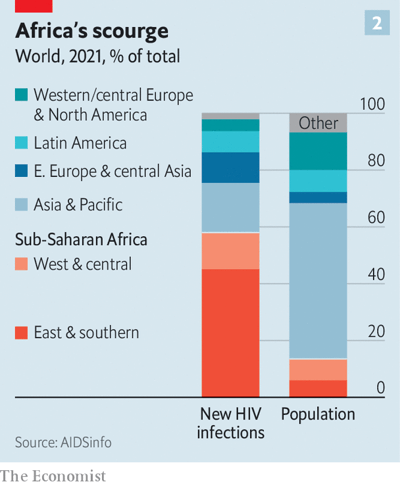HIV in Africa: Some solutions

The Economist last week had in hopeful article on ways to break the cycle of HIV transmission, particularly among young woman who have sex with older men. Much of the discussion is on PrEP
A more promising idea is to prevent girls and young women from becoming infected, ideally using methods which do not require them to persuade a man to wear a condom (which is difficult). Among these are three PrEP methods that have become available in recent years: a vaginal ring, a daily pill and an injection every second month. Convincing women at risk of hiv
to use them can, however, be a challenge.
The vaginal ring, an insertable silicone device that releases an ARV drug and must be replaced every month, can reduce the risk of HIV infection by as much as 50%. But “it’s not going to be everybody’s cup of tea,” admits Dr Bekker.
The daily PREP pill, which contains a combination of ARV drugs, has been available in Africa for several years. But it has been tricky to pinpoint how effective it is because even in clinical trials too few women used it consistently. Some studies estimate that, if used properly, these pills can reduce the risk of HIV infection by as much as 90%. But it is hard to take the medication discreetly at work or school and tricky to hide from a parent or a boyfriend.
Women worry about stigma…
The most promising option is an injectable form of PrEP. This contains a long-acting form of cabotegravir, which stops an important stage in the replication of HIV in host cells. It is delivered as an injection, initially once a month and then every two months, and was included in the World Health Organisation guidelines on HIV prevention last year. In clinical trials with women in Africa, it was nearly 90% more effective than oral PrEP.
The study also discusses the possibility of other injectable PrEP treatments which are administered less frequently (every 6 months) to improve adherence. The full article is here.
https://www.economist.com/middle-east-and-africa/2023/03/22/new-drugs-may-protect-girls-having-sex-with-older-men-from-hiv







